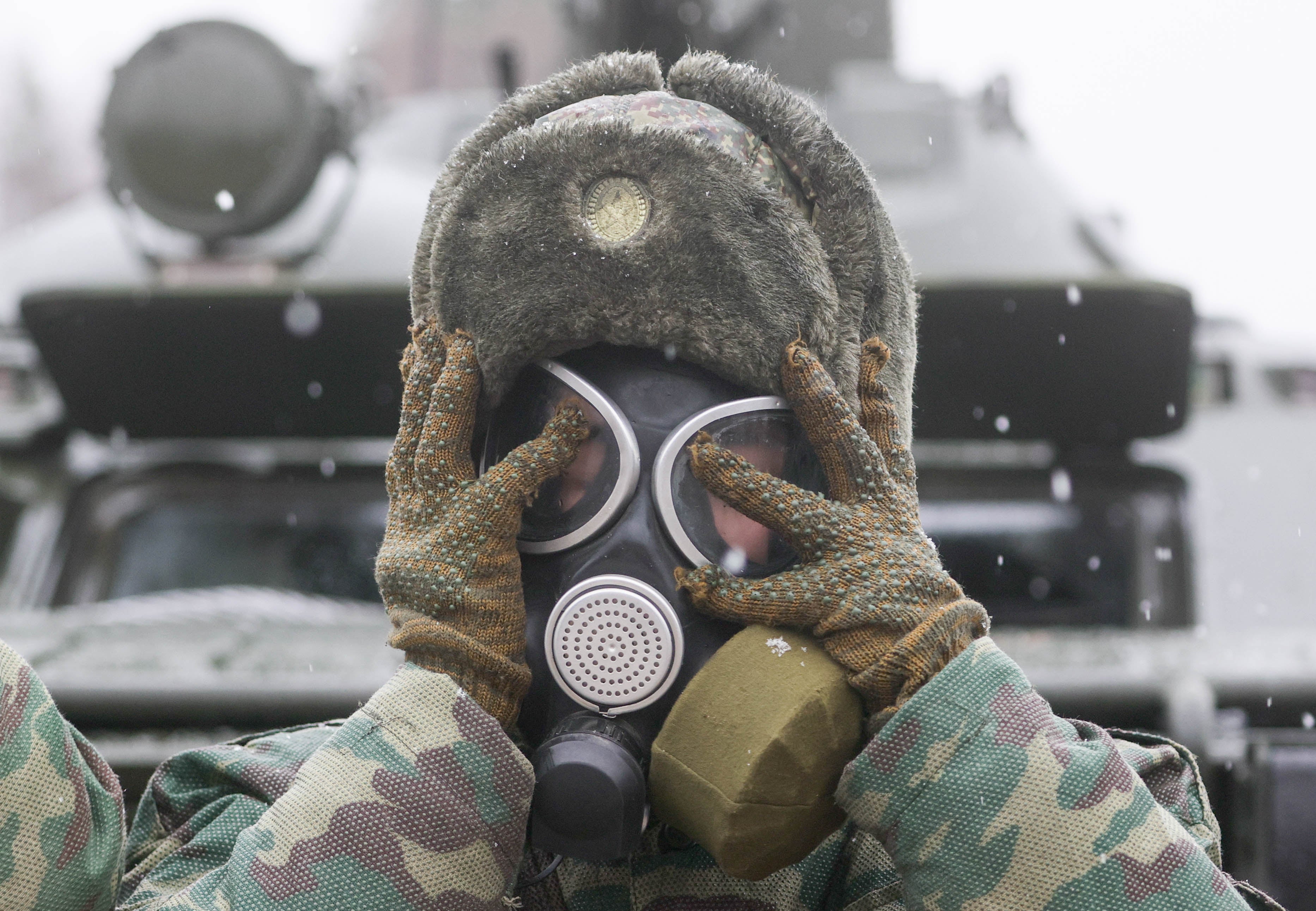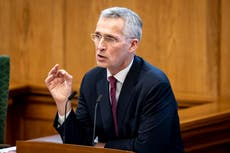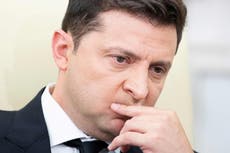France and Germany warn Russia over military build-up at border with Ukraine
France and Germany said harming Ukraine’s territorial integrity ‘would have serious consequences’

France and Germany have warned Russia that its military build-up at the Ukraine border threatens peace and said Paris and Berlin would stand alongside Kiev in case of any escalation.
The French and German foreign ministers said on Monday that they regretted a refusal by Moscow to discuss the issue and issued their support for the Ukrainian government.
Their joint statement was issued hours after Nato sounded the alarm over a “large and unusual” concentration of Russian troops on Ukraine’s borders, and warned the situation should not be allowed to spiral out of control.
“Against the backdrop of renewed concerns about Russian movements of troops and hardware near Ukraine, we call on Russia to adopt a posture of restraint and provide transparent information about its military activities,” the joint statement read.
“Any new attempt to undermine Ukraine’s territorial integrity would have serious consequences.”
Concerns are growing that Russian soldiers could enter Ukraine while the region is focused on the worsening migrant crisis at the Poland-Belarus border.
“We see an unusual concentration of troops, and we know that Russia has been willing to use these types of military capabilities before to conduct aggressive actions against Ukraine,” Nato secretary-general Jens Stoltenberg told a news conference with Ukraine’s foreign minister Dmytro Kuleba in Brussels earlier on Monday.
He added that Nato had to be “clear-eyed” and “realistic about the challenges we face”.
Similarly, Lithuanian foreign minister Gabrielius Landsbergis said that he could not rule out a Russian invasion of Ukraine while the west is distracted by the migrants crisis on the Polish borders.
He also told reporters that Russia could also exploit the inflammatory situation around the influx of refugees from Belarus to Poland to establish a military base in Belarus.
Mr Landsbergis said: “It can go either way,” adding that he “would not exclude that as a possibility”.
Russian troop movements near the Ukrainian border have over the past days spurred fears of a possible attack.
Ukrainian president Volodymyr Zelenskiy said there were nearly 100,000 Russian soldiers near Ukraine’s border and that western countries had shared information about the sensitive situation with Kiev.
The proximity of locations where Russian troops are deployed is considered a serious threat as it would leave Nato troops with limited time to plan and implement any response in the event of military action.
Mr Stoltenberg stressed this point during a press conference on Monday by saying: “The fact that we see this military build-up also reduces any warning time between a decision in Russia before they are able to actually conduct a military aggressive action against Ukraine.”
Moscow has dismissed such suggestions as inflammatory and complained about increasing activity in the region by the Nato transatlantic alliance.
Ukraine and Russia have been involved in armed conflict since 2014, with pro-Russian separatists clashing with Ukrainian troops in the Donbas region. More than 13,000 people have been killed.
The increasing militarisation of the Black Sea is another area where Mr Kuleba has expressed concern and called for nations to stand up to Russia.
He said on Monday that Nato and non-Nato members should join action regarding the situation in the Black Sea. Mr Kuleba’s statements came during his visit to Brussels hours after his return from a similar trip to Washington, where he tried to lobby the Biden administration to take action.
US secretary of state Antony Blinken spoke on Saturday with French foreign minister Jean-Yves Le Drian to discuss reports of the Russian troops’ movements.
Join our commenting forum
Join thought-provoking conversations, follow other Independent readers and see their replies
Comments


Bookmark popover
Removed from bookmarks